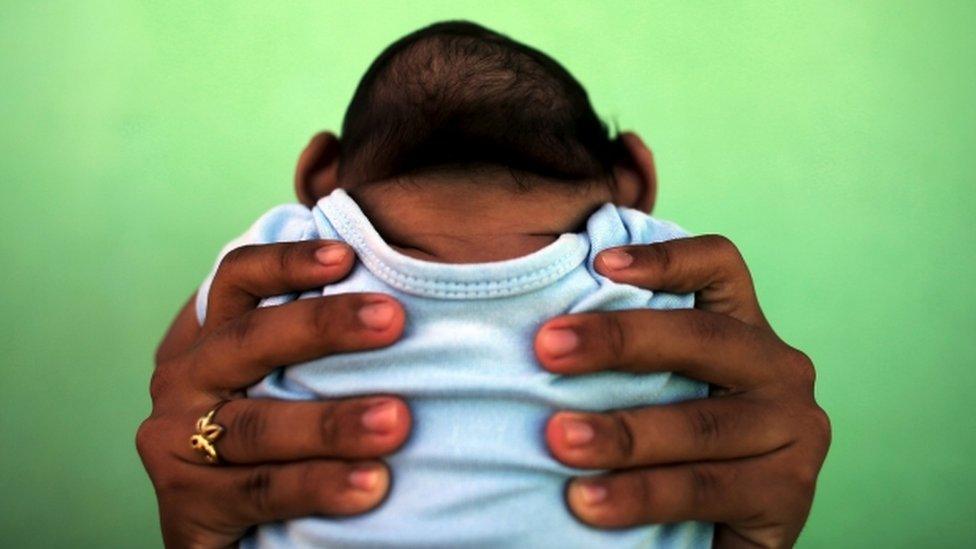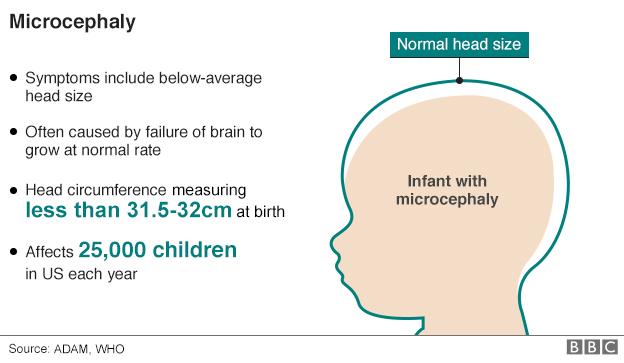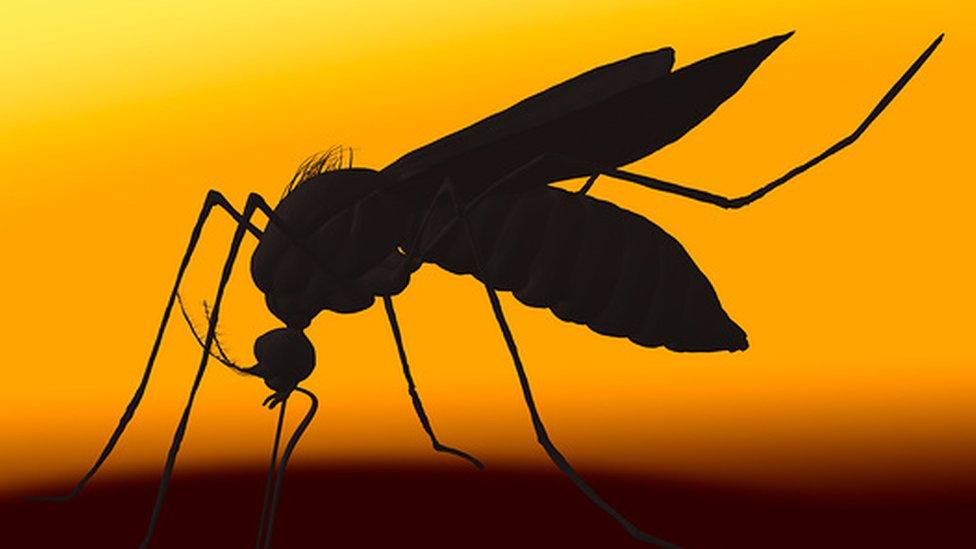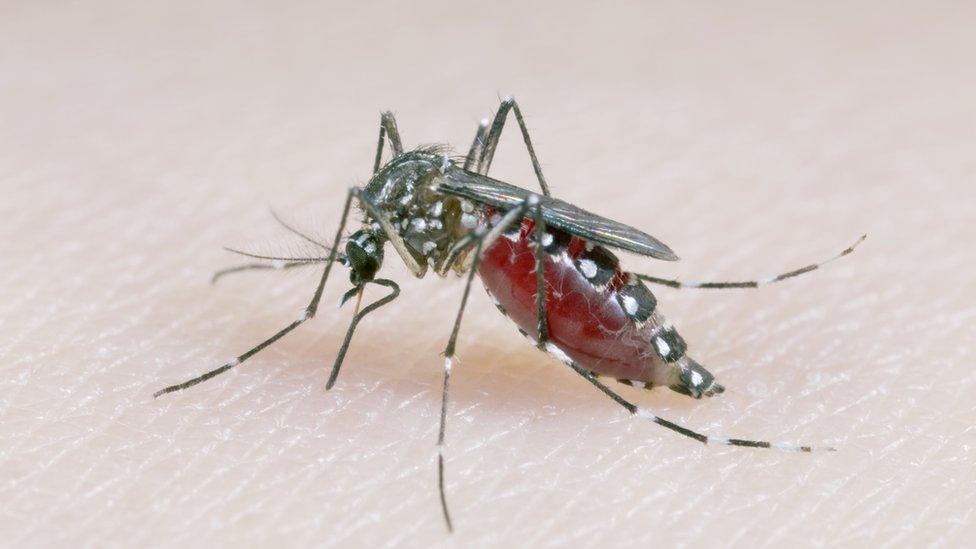Zika therapy 'works in the womb'
- Published

Scientists say they may have found a way to protect babies in the womb from the harmful effects of Zika.
So far the US team has only had success in mice with its antibody treatment, but it says it might eventually lead to a therapy for women who catch Zika in pregnancy.
The Zika virus can severely damage a newborn's brain.
The antibody therapy is made using blood cells from people who have recently had and fought off Zika.
In mice, the treatment significantly reduced the amount of Zika virus that circulated in the mother's blood and crossed the placenta into the baby, Nature journal, external reports.
At birth, there was less damage to the placenta and these baby mice were much bigger than others whose mothers had not received the antibody treatment.
The researchers stress that years of testing will be needed to see if it could be a safe and effective treatment for pregnant women.
In the meantime, other scientists are focusing on making a vaccine that could protect people from catching Zika in the first place.
Zika is spread to people by mosquito bites. Outbreaks of the disease have been seen in the Americas and, more recently, in south-east Asia.
Singapore has said its outbreak was caused by a local strain, not the one which caused the huge outbreak in South America.
Prof Laura Rodrigues, from the London School of Hygiene and Tropical Medicine, said: "At the moment, if a pregnant woman is diagnosed with Zika she only really has one option - whether or not to have a termination.
"Even if we do one day have a vaccine that can protect people from catching Zika, there will still be some who will get infected.
"For these people, a treatment like this antibody one would be helpful."

What are the symptoms of Zika?
Deaths are rare and only one in five people infected is thought to develop symptoms. These include:
Mild fever
Conjunctivitis (red, sore eyes)
Headache
Joint pain
A rash
A rare nervous system disorder, Guillain-Barré syndrome, that can cause temporary paralysis has been linked to the infection.
What can people do to avoid it?
As there is no vaccine or treatment at the moment, the only option is to reduce the risk of being bitten.
Health officials advise people to:
Use insect repellents
Cover up with long-sleeved clothes
Keep windows and doors closed
Ensure mosquitoes have nowhere to breed by removing standing water
Patients are advised to rest and drink plenty of fluids.

What is microcephaly
A birth defect where a baby is born with an abnormally small head, as their brain has not developed properly.
The severity varies, but it can be deadly if the brain is so underdeveloped that it cannot regulate the functions vital to life.
Children that do survive face intellectual disability and development delays.
It can be caused by infections such as rubella, substance abuse during pregnancy or genetic abnormalities.

- Published4 August 2016

- Published26 October 2016
